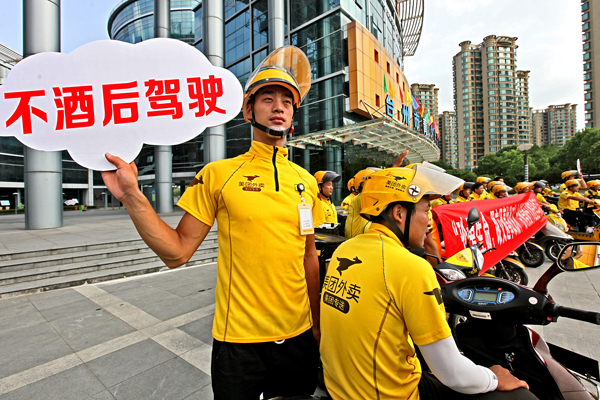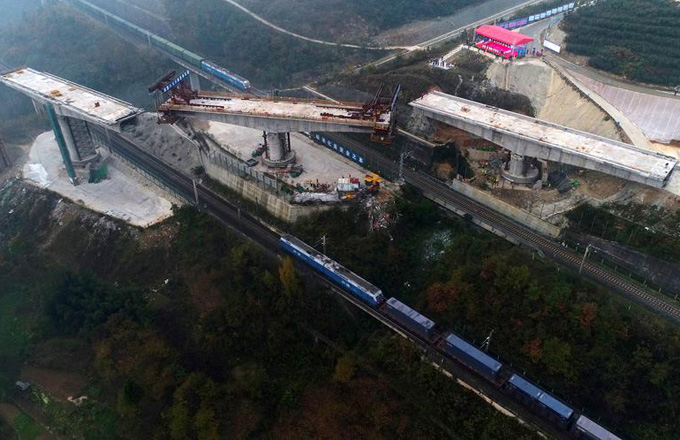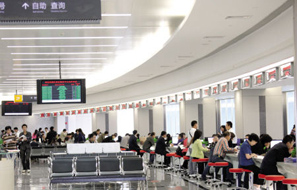As food couriers rush, danger lurks
 |
|
Dozens of food couriers gather in Taizhou, Zhejiang province, earlier this month to affirm their willingness to obey traffic rules. The sign says "No drunk driving". Sun Jinbiao/China Daily |
The boom in online takeout services has led to a sharp rise in road accidents involving food delivery drivers, largely because the couriers break traffic rules to avoid fines for being late, according to data from several major cities.
Authorities in Shanghai, Nanjing and Shenzhen have all released data in recent days showing that being a takeout food courier - with most traveling by electric scooter - has become a hazardous job.
In Shanghai, delivery drivers were responsible for a crash every 2.5 days, on average, during the first six months of this year, according to the traffic management authorities.
In Nanjing, Jiangsu province, the city's public security department recorded 3,242 accidents involving food couriers in the first six months, resulting in three deaths and 2,473 injuries. Delivery drivers were blamed 94 percent of the time.
In Shenzhen, a bustling metropolis in Guangdong province, the traffic police logged 1,781 cases of takeout food couriers breaking rules in the first 10 days of September. Offenses included running red lights (196 cases), driving an e-bike in a motor vehicle lane (1,226 cases), using a cell phone while riding and reckless driving.
Yu Mengling, 26, who has worked as a delivery courier in Shanghai for nearly two years, said most couriers violate traffic rules during the order-intensive peak hours because they cannot afford to be late.
"If we cannot deliver their orders in time, customers will complain and we will be punished," he said.
Traffic management departments in several cities, such as Shenzhen, Nanjing and Haikou, Hainan province, are telling food delivery businesses to solve the problem.
Feng Xinyi, deputy head of the Shenzhen traffic police bureau, said the bureau has signed deals with a number of online takeout platforms, agreeing that traffic police will regularly inform them of violations of traffic rules by their riders, and that punishments are expected.
The first list of 468 couriers was sent to the online delivery platforms earlier this month, and the platforms were asked to suspend the couriers from work for a week.
The Nanjing traffic management department is soliciting opinions from the public and online delivery platforms on a draft regulation by Saturday.
Apart from a three-tier punishment system similar to that of Shenzhen, the draft also includes a call for a blacklist of couriers who are found to be criminally liable in traffic accidents and forbidding them from future employment in the business.
Some online platforms have organized mandatory training and incorporated road safety tests in their courier job applications. Couriers must pass an exam every two months or they will be suspended from work.
Zhou Yi, spokesman for online takeout platform ele.me, which has about 3 million couriers, said that while each company is responsible for training its own couriers on traffic rules before they can start working, it's impractical to bring them back for more training once they set out on the road.
The test, which is done via app, is designed to serve as a constant reminder about road security, Zhou said.
Yu, the courier in Shanghai, said: "It might be useful for us to take the exams every two months. But I don't think it will completely solve the safety problem."
He Qi contributed to this story.





















